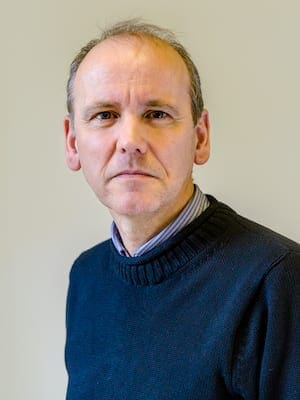PORTO ALEGRE, Brazil–More than 60 Baptists attended a meeting with Baptist World Alliance General Secretary Denton Lotz at the ninth World Council of Churches assembly in Porto Alegre, Brazil.
Because of the way it is structured, BWA is not a member of the WCC–which includes more than 350 churches encompassing mainline Protestant, Anglican and Orthodox traditions–but 21 BWA member unions and conventions are.
Angelique Walker-Smith, executive director-minister of The Church Federation of Greater Indianapolis, is a delegate representing the National Baptist Convention U.S.A., Inc. She has been a member WCC Central Committee and reflected on the assembly from a Baptist perspective.
“We’ve come a long way since the last assembly in Harare, where there was so much difficulty over the issue of Orthodox participation,” Walker-Smith said in an interview with the British newspaper Baptist Times. “In the last seven years, we’ve addressed a number of issues.”
Walker-Smith welcomed a new consensus method of reaching decisions, adopted after extensive conversations with Orthodox theologians, which replaced the old parliamentary-style voting system. She said the new method is congenial to Baptist theology and allows better reflection of Baptist concerns.
“In this circle we’re a minority, but in fact we’re one of the largest confessions,” she said. With an estimated 7.5 million members, the National Baptist Convention U.S.A., Inc., is the largest African-American religious convention in the United States.
Asked about a relatively low Baptist profile at the assembly, Walker-Smith said many Baptists do not instinctively engage with some of the theological issues that occupy WCC meetings.
“Issues of mission and evangelism are a more natural fit for Baptists,” she said.
All Baptists are evangelical, she said, but not all are ecumenically minded. “If they [other groups] don’t use our language, it’s not easy to get into the conversation,” she said. “For us African-Americans it’s easier, because there’s the issue of race, which is a WCC concern; if you’re not relating on specific justice issues, it may be hard for Baptists to relate.”
Yet Walker-Smith disagreed with one assembly contributor who argued at ecumenism had “gone about as far as it could go” at a structural level.
“I’m convinced that ecumenical life is thriving in the world,” she said. “It’s the word that’s the problem–people don’t accept or understand the language or coding. But we as a constituency have to work out how to relate the institution to the vibrancy that’s out there.”
“The implementation is challenging,” she said, but she believes there is a future for ecumenical institutions such as the WCC.
“Institutions are important,” she said. “We’re a globalized society, and we have to be able to motivate institutions. But you can’t divorce that from the vibrancy at the local level.”
On Thursday, the final day of the 10-day gathering of 4,000 Christian leaders, delegates asked the group’s 500 million members to oppose military force to fight terrorism and said the U.S.-led campaign threatens to undermine international law and human-rights standards.
Other statements urged the international community to ease the burden of debt on Latin American nations, called on North Korea to make a “fully verifiable return” to the Nuclear Nonproliferation Treaty, which it left in 2003 amid international pressure over its nuclear program, and appealed to Iran to use its atomic program for peaceful purposes.
Mark Woods is editor of The Baptist Times. Bob Allen contributed to this report.

